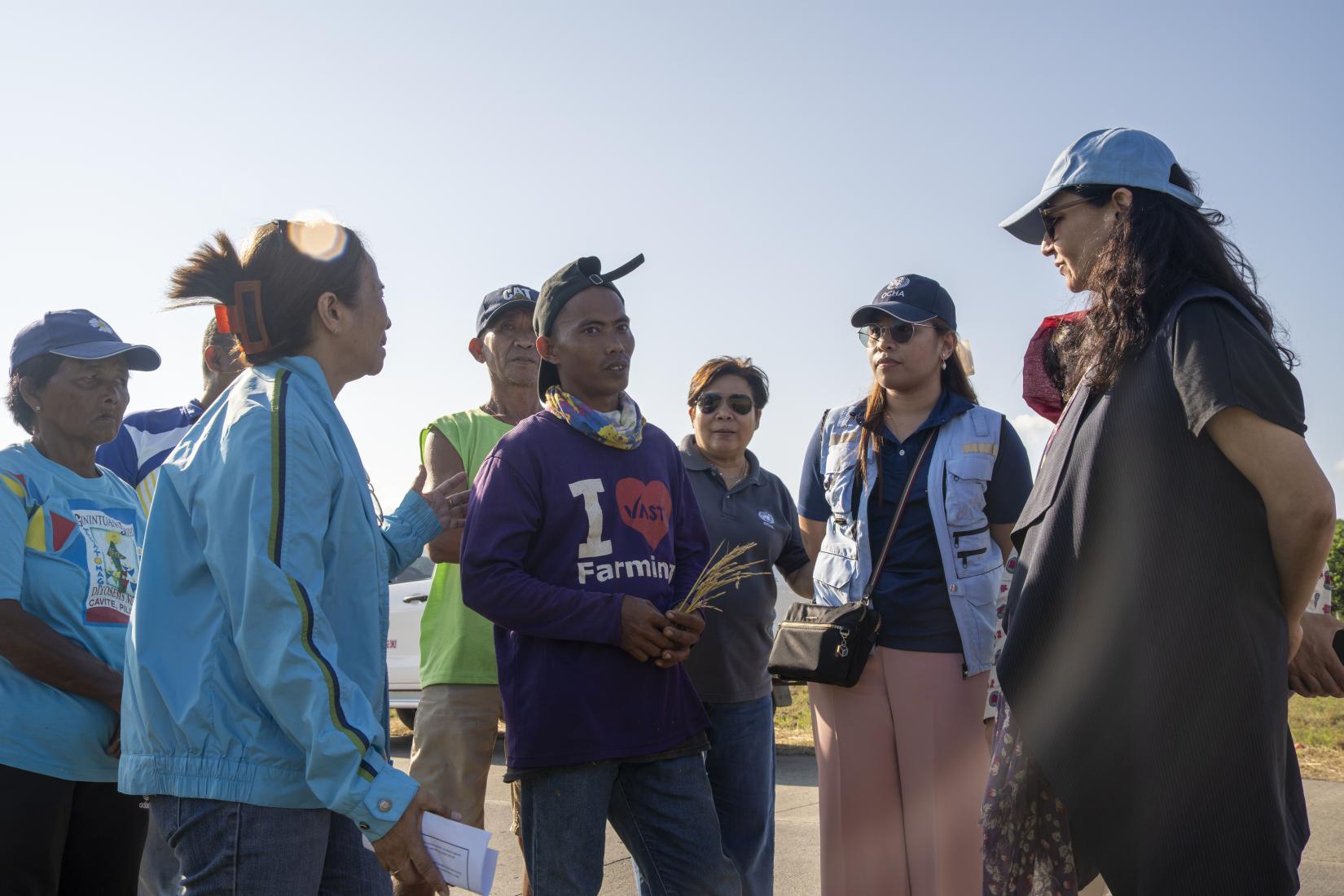The UN calls for increased support for climate resilience in the Philippines as drought wreaks havoc
25 April 2024

MANILA, PHILIPPINES. The international community is behind the Philippine Government as it faces a serious drought induced by El Niño. The Climate Crisis Coordinator for the El Niño / La Niña Response, UN Assistant Secretary-General Reena Ghelani and the UN Resident and Humanitarian coordinator in the Philippines, Gustavo Gonzalez urged for increased support to the Government response. This call was made at the end of the visit of the Climate Crisis Coordinator for the El Niño / La Niña Response in the Philippines.
The current El Niño episode, one of the strongest in history, is causing dry conditions and high temperatures across South-East Asia. In the Philippines, 41 provinces are experiencing drought and nearly 31 others are facing dry spells or dry conditions. More than 1,400,000 people have been affected and the upcoming harvest will likely be below average. The Government, with support from partners, has put in place a national Task Force, headed by the National Disaster Risk Reduction and Management Council, to prepare for and mitigate the worst impacts of the crisis on water, food security, health and energy.
The UN and humanitarian and development partners have been actively preparing for and responding to El Niño in the Philippines in support of the Government's El Niño relief efforts. In 2024, the Food and Agriculture Organization (FAO) and Oxfam Pilipinas activated their Anticipatory Action programs in the north, Isabela, and the south of the country, the Bangsamoro Autonomous Region in Muslim Mindanao, to provide immediate support to affected communities before the effects of drought are most felt. Early last year, the World Food Programme (WFP) worked with the Government and communities to build ponds and small reservoirs to ensure water sufficiency and food security in pre-identified areas affected by El Nino. Likewise, private sector's collective action is being monitored by the Philippine Disaster Resilience Foundation (PDRF). The majority of the sector's support is aligned with food and water security.
"The Philippines demonstrates the importance of acting early before a disaster strikes. With more frequent and severe climate shocks, it is crucial we strengthen our support to community resilience", said Reena Ghelani.
One of the most disaster-prone countries in the world, the Philippines is highly exposed and vulnerable to the impact of climate change. Recent estimates showed that climate change could cost the Philippines over 7% of GDP by 2030. Disasters have already cost US$ 23 billion in damages to the country since 1990.
"Building resilience to address shocks like El Niño/ La Niña is at the heart of the new UN Cooperation Framework signed with the Government last year. The UN Country Team is presently recalibrating such technical assistance as part of the Enhancing Resilient Communities flagship initiative. The visit of the UN Coordinator is very timely as climate-related investments are needed more than ever," underscored Gustavo Gonzalez.
During her week-long mission to the Philippines, Reena Ghelani met with the Government's National Task Force on El Niño, the Humanitarian Country Team, the Philippine Red Cross and other partners. She interacted with communities affected by El Niño and women's groups engaged in strengthening community resilience. She also visited a climate-resilience housing project and spoke with local authorities and civil society organizations.


